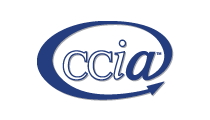This website uses cookies so that we can provide you with the best user experience possible. Cookie information is stored in your browser and performs functions such as recognising you when you return to our website and helping our team to understand which sections of the website you find most interesting and useful.
Business News Digital Legal Top Stories
Web firm trade group opposes anti-piracy proposals in Australia
By Chris Cooke | Published on Monday 8 September 2014
A global trade group for the web sector, which counts Google, Facebook and Microsoft amongst its membership, has hit out at previously reported proposals in Australia to introduce new anti-piracy measures. As previously reported, both three-strikes and web blocking are up for consideration as Australian regulators consider helping the copyright industries better tackle online infringement in the country.
The proposals on the table, and the arguments for them, are pretty much a repeat of what has been put forward by the music and movie industries in other countries previously, including the UK. So it’s perhaps unsurprising that the tech sector’s opposition to the new anti-piracy measures – and their rationale – is also rather familiar.
The Computer & Communications Industry Association insists that the real problem isn’t the kids file-sharing, but the failure of the content industries to embrace the potential of the net, with a “lack of availability of lawful content” and “high prices”.
Of course in the music space that particular fix-this-before-you-legislate argument doesn’t really work any more, because even in Australia, where the digital market has lagged a little, there is now plenty of legit music content online, including ad-funded free-to-access services. True, catalogue gaps remain, but the new titles routinely shared online illegally are very much available legitimately at fair prices.
The same is not necessarily true of the movie sector, and it’s Hollywood that the CCIA is mainly lashing out at with that line of argument. Meanwhile the tech group’s claims about “cumbersome and restrictive territorial copyright restrictions” and bad “licensing conduct” can still be aimed at the music business.
The CCIA also questions the content industries’ stats about piracy, and the effectiveness particularly of three-strikes, where internet service providers are forced to send stern letters to file-sharing customers, including the threat of some sanction if infringement continues.
According to Torrentfreak, in its submission to the Australian government, the CCIA says: “Empirical data on the impact of copyright infringement over the last two decades is deeply contested and in some cases to such a level that it is being ridiculed. This is a highly undesirable development for the perception of copyright and by extension intellectual property in general by the broader public”.
And, it goes on: “Economists have expressed concerns that copyright has a moral hazard effect on incumbent creative firms, by encouraging them to rely on enforcement of the law rather than adopt new technologies and business models to deal with new technologies. Hence, enforcement should not become a tool to protect businesses from competition, changing business realities and changes in consumer exactions, hereby allowing them to continue to hold on to outdated business models”.
Interestingly, in the UK it feels like the “copyright stifles innovation” argument has fallen out of favour of late, with Culture Minister Sajid Javid saying last week: “I know some people say the IP genie is out of the bottle and that no amount of wishing will force it back in. But I don’t agree with them. We don’t look at any other crimes and say ‘It’s such a big problem that it’s not worth bothering with'”.
Though, of course, the three-strikes system that the CIAA seems to oppose most strongly never really got off the ground here. A lite version is now incoming, of course, but in the UK web-blocking has become the anti-piracy tactic de jour, with Javid indicating he’ll soon address the missing link in that practice, forcing the search engines to participate. Though you suspect the CIAA, with Google on its team, would have strong words to say about that proposal too.






